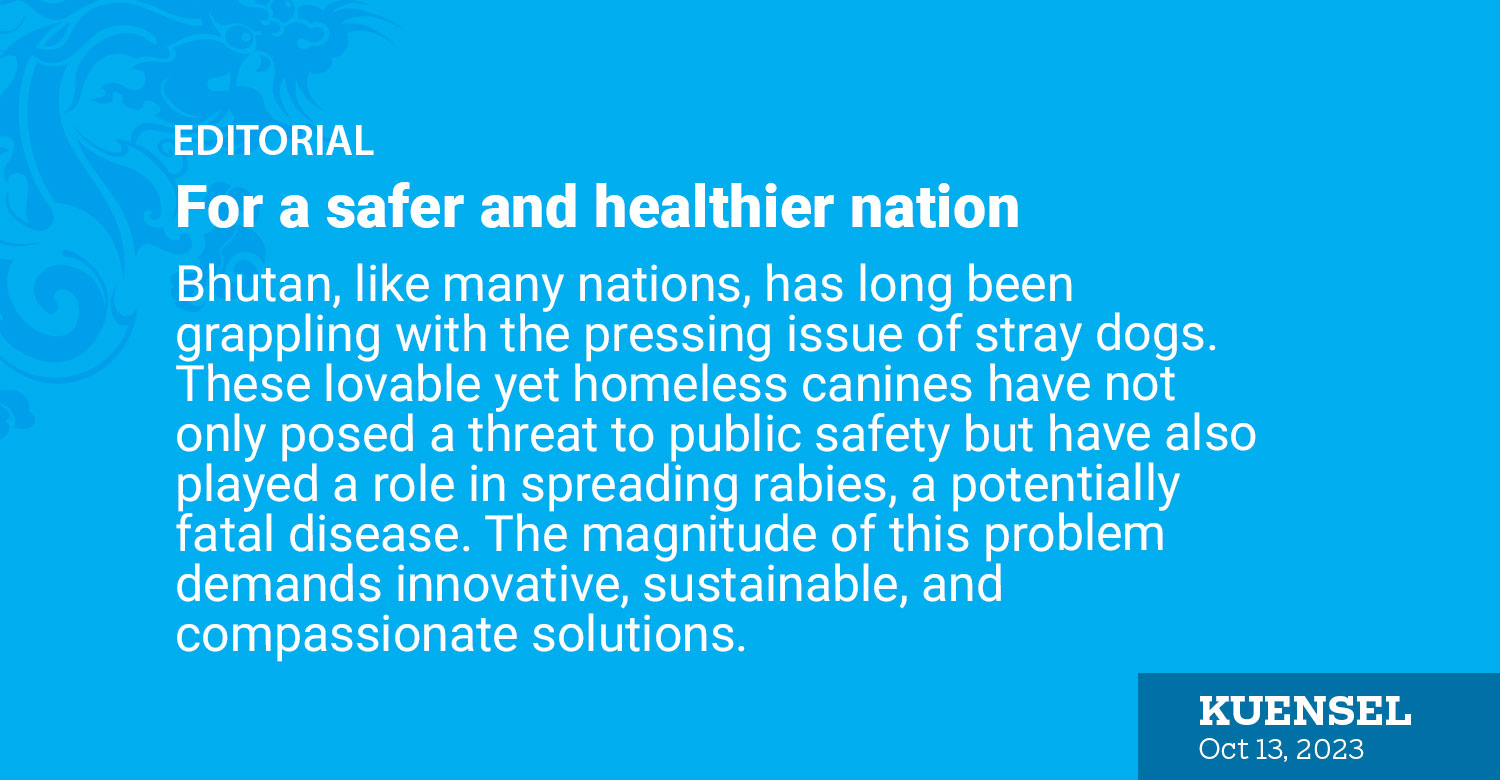Bhutan, like many nations, has long been grappling with the pressing issue of stray dogs. These lovable yet homeless canines have not only posed a threat to public safety but have also played a role in spreading rabies, a potentially fatal disease. The magnitude of this problem demands innovative, sustainable, and compassionate solutions.
The National Accelerated Dog Population Management and Rabies Control Programme (NADPM and RCP) are not only a display of Bhutan’s commitment to animal welfare but also a remarkable demonstration of its determination to create safer and healthier communities.
By systematically sterilising dogs, we are not only addressing the root of the stray dog problem but also significantly reducing the risk of rabies transmission to both humans and other animals. It is a serious step toward achieving public health and safety objectives, one that deserves our applause.
As we ponder the striking paradox of Bhutan’s declining fertility rate amidst a campaign to sterilize dogs, it becomes evident that this initiative is not about choosing between human or animal welfare, but rather about crafting a comprehensive approach to the well-being of all living beings.
The pledge to reach a 100 percent sterilisation rate by the end of October is nothing short of a Herculean endeavour, and our dedication to this goal should be applauded. The campaign has engaged local communities, ensuring that the responsibility for caring for stray dogs doesn’t rest solely on the government but extends to the citizens.
The quieter streets, safer neighbourhoods, and reduced health risks are outcomes to cherish, reminding us that achieving equilibrium in our communities should be a source of pride and joy.
This initiative is a beacon of hope and inspiration for the global community. It illustrates the positive impact of comprehensive public health measures and the power of collaboration between government and citizens. It shows that even in the face of paradoxical challenges, a nation can find a path to progress that is both pragmatic and compassionate.
In a world too often divided by polarised debates, we celebrate this achievement. Sometimes, the best solutions are the ones that bridge divides, prioritise safety and welfare, and celebrate the decline of problems rather than their proliferation.


